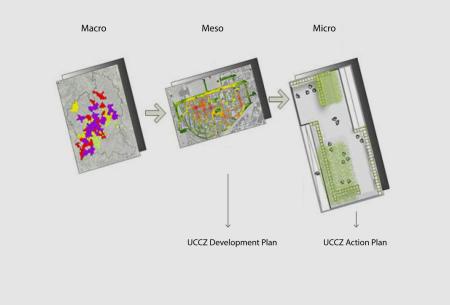
Resource description:
Guidelines for tackling heat island effects of urban open spaces, identifying prior areas of concern and proposing measures to enhance thermal comfort, micro-climate, amenity value and biodiversity in urban regions (with strategically distributed green spaces).
Author/Contact:
TURAS
Expert contact: Bernd Eisenberg
Advantages:
- The proposed strategy tackles the problem at the relevant ends, the heat stress exposure and movement patterns in cities and helps to identify the areas of concern that need most of the attention when it comes to climate change adaption measures. The focu
- This tool focuses on social and ecological sustainability.
- Main outcomes: physical improvements, community empowerment, knowledge/data.
Constraints:
- Inhabitants of high-density urban areas are faced with multiple environment-related issues, which include summer heat stress caused by the urban heat island effect. As a consequence, the usability of open spaces might be strongly affected, especially for
Uses of this resource:
The heat island effect is a well-documented consequence of urbanisation processes. The average temperature in inner city regions can be up to 4°C higher and winds are weaker than in neighbouring countryside locations. This leads already now to a higher number of days with heat stress in inner cities. Those numbers will increase and the situation will be more severe in the future due to global climate change.
Additional information:
WHO SHOULD BE INVOLVED?
FACILITATORY (PUBLIC) BODIES:
planning and development department; green spaces department; strategic planning department; health and social well-being department; environmental and sustainability department
LOCAL TASK FORCE:
professional expert; local or regional authority; researcher; community group
SUITABLE FOR:
dense inner city; urban region; (sub-)urban communities
MAIN NECESSARY RESOURCES ARE:
monetary investments; expert knowledge; local knowledge; space; public institutional set-up
Licence:
- Free, no licence
Development stage:
- Full, working product